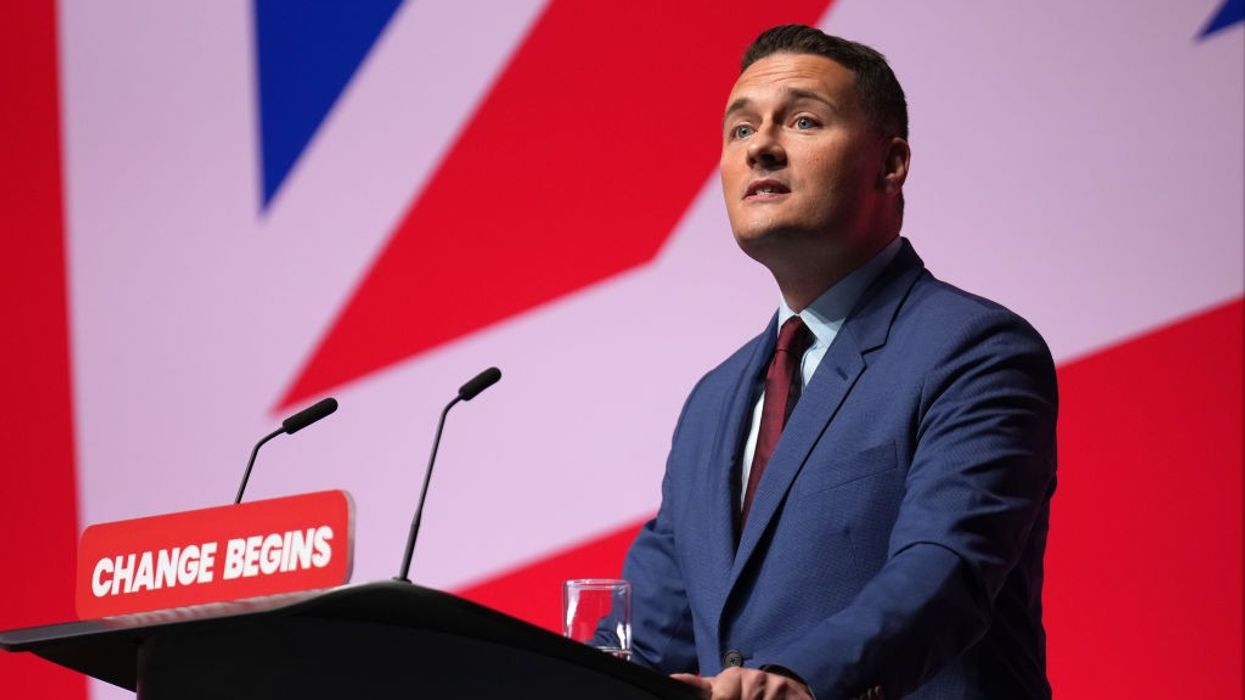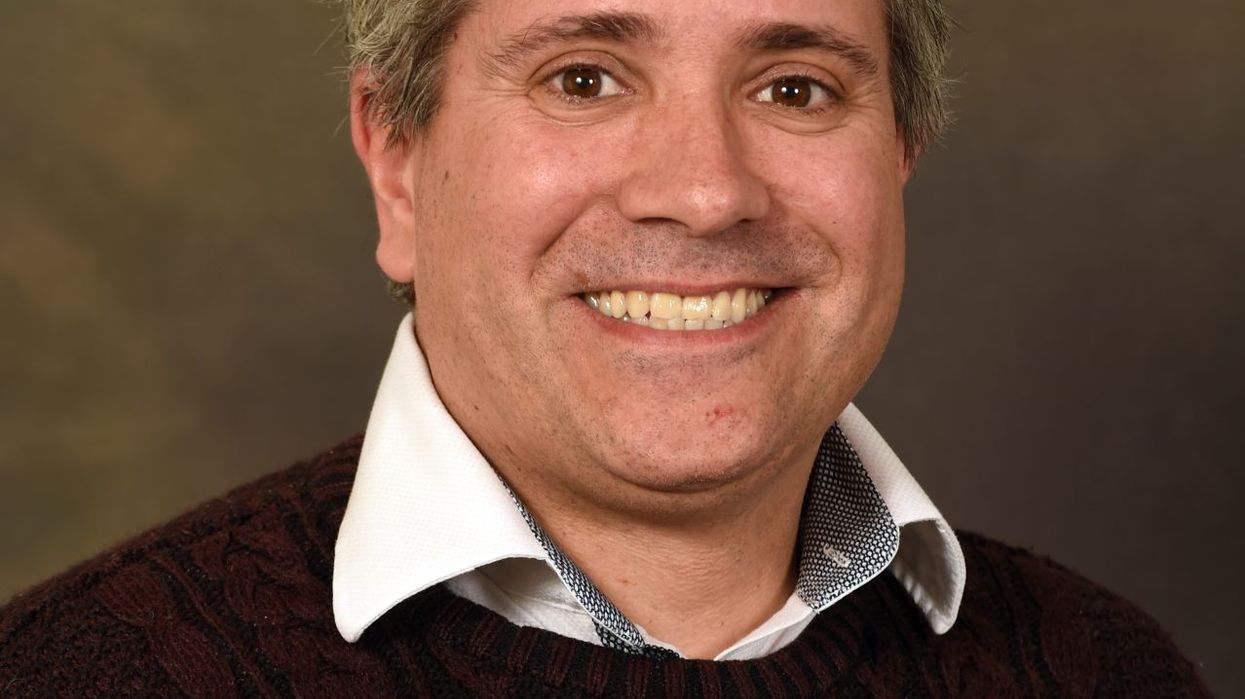By Priyankur Mandav
As stocks of hand sanitisers, face masks, thermometers, paracetamol, painkillers and vitamins are depleted from shops, pharmacists across the UK are working hard to ensure those who are most at risk get the items they need.
Panic buying by British consumers has put pharmacies’ most at-risk patients in a precarious position.
At Copes Pharmacy in Streatham in south London, pharmacist Ashok Soni, a former president of the Royal Pharmaceutical Society (RPS), has been dealing with a deluge of patients every day since the upswing in Covid-19 infections.
In order to protect both his staff and the patients, he has employed a strict policy of limiting the number of customers into the pharmacy.
“We are operating a one-in, one-out policy at the moment to try to reduce the risk not just for people coming in for their medicines, but also to protect my staff,” Soni said.
The number of patients has grown exponentially, and it’s been “just nonstop” every day, Soni explained.
As with many other pharmacies, his staff have been working flat out dealing with medicine shortages and procurement issues, but above all, meeting the needs of each patient who walks through the pharmacy door.
Soni’s pharmacy used to stock toilet rolls, liquid soap and hand sanitisers, but all the shelves are now empty.
“Prescriptions are absolutely critical,” he said, adding that it was very difficult dealing with the volume “we are getting at the moment”.
“If either a customer comes in who has Covid-19 or one of my staff develops symptoms, we have to be very careful. We will have to think about whether we have to shut shop,” Soni said.
“Obviously, we don’t want to do that because the consequence to all those people who want to get their medication is going to be quite significant.
“And the other thing we are trying to do is looking at ways we can increase the number of medicines we deliver directly to patients on their own at home.”
Meanwhile, superintendent pharmacist Olutayo Arikawe, from Dudley in the West Midlands, said her pharmacy was investing in the emotional and mental wellbeing of the staff.
“We are placing a lot of emphasis on health and safety, hand washing and social distancing, and we are currently looking into limiting the number of people entering the pharmacy,” she said.
“I have had to shop over the phone for our elderly patients and deliver their medication on a regular basis. It is important that this group of elderly and vulnerable patients are taken care of and not forgotten at home in these difficult times.”
Olivier Picard, who owns four Newdays pharmacies in Berkshire, described his experience in recent weeks.
“We have had a four-fold increase in footfall, about 800 people visiting our pharmacy each day since early March. It’s worse than Christmas and Easter put together,” Picard said.
His pharmacy staff were overwhelmed fielding questions about the coronavirus. The huge footfall was welcome, but most of it didn’t translate into business transactions, he admitted.
“We get no remuneration for the time we commit,” he said. “We are already at a stage when we can’t go any further. Government needs to look at it urgently.”
Due to the recent shortages of medicines and medical products, pharmacists are also having to pay upfront if they need to order stock in short supply. Wholsale prices for some medicines have gone “through the roof” and pharmacists are having to pay out of their own pockets.
Picard said wholesale prices for some products had increased five-fold which means his drug purchase cost in March “will be much higher than the payment I would receive from the NHS”.
Simon Dukes, the chief executive of the Pharmaceutical Services Negotiating Committee recently said that while GPs would be paid despite closing their doors to patients over reasons of safety, pharmacists couldn’t afford to pull their shutters down. “Ninety per cent of the income of high street pharmacies come from the NHS. Unlike GPs, if a community pharmacy closes its doors, it’s not going to get paid. Many of them will get affected by front-line staff being affected by Covid-19,” Dukes said.
Medicines had to reach vulnerable patients, but NHS did not have or pay for a delivery service, he added.
“If you have your medicine delivered, it’s either because you pay for it as the patient or the pharmacy is doing it for free,” Simon explained, adding: “There is a real issue here – if we need medicines delivered, we need to see government funding (the delivery service).”
Leyla Hannbeck, the CEO of the Association of Independent Multiple Pharmacies, said, “Pharmacy teams do not have this option” (of closing their pharmacy and isolating themselves unless they too were infected).
“As we move more and more toward social isolation, community pharmacy, like in other European countries, will be the only immediately available healthcare resource without an appointment,” Hannbeck said.
She urged the government “to support this sector to allow us to continue being on the front line. Many pharmacies are being asked to deliver medicines to self-isolating patients. To carry on this activity and meet the demand, pharmacies need emergency funding.”
The National Pharmacy Association has also said pharmacies need contingency funding in order not to be forced to close due to staff shortages over Covid-19.
The RPS has called for a greater recognition of pharmacists in official communication about the Covid-19 response.
In a letter to health and social care secretary Matt Hancock on March 23, English Pharmacy Board chair Claire Anderson said the sector was “shocked by the lack of recognition, support and encouragement from the government for the fantastic work pharmacy is doing”.
She noted the “regular specific mentions of doctors and nurses” in official communication to put the issue into perspective. “Pharmacists have been expressing their disappointment to us over the past few days and I feel compelled to relay these concerns,” she said.
Significantly, a day after receiving the letter, Hancock offered his “salute” for the work pharmacists were doing to limit the impact of the coronavirus outbreak.

















